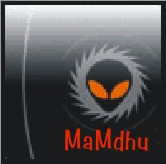 Censorship and Control of the Internet
Censorship and Control of the InternetSilenced is an independent research initiative managed jointly by Privacy International and the GreenNet Educational Trust. The twelve-month project was undertaken through a collaboration of more than fifty experts and advocates throughout the world. The work was made possible by a grant from the Open Society Institute.
For full report, click here (2MB PDF)
The Internet has evolved to become an increasingly important platform not just for economic development, but also as a support for advocates who wish to express their opinion freely and to work toward the development of democracy. The medium has provided opportunities for citizens to participate in forums, and to discuss and debate issues that concern them. Unlike other media where the information flow is unidirectional - from the government to the masses - the Internet allowed a multi-way communication process giving the chance for anybody to air their opinions and views on issues affecting them. The development of the Internet has lead to more horizontal and less vertical communication. Control and censorship has a substantial effect on the Internet because it undermines confidence and trust in the medium and inhibits crucial flows of data.
This study has found that censorship of the Internet is commonplace in most regions of the world. It is clear that in most countries over the past two years there has been an acceleration of efforts to either close down or inhibit the Internet. In some countries, for example in China and Burma, the level of control is such that the Internet has relatively little value as a medium for organised free speech, and its used could well create additional dangers at a personal level for activists. The September 11, 2001 attacks have given numerous governments the opportunity to promulgate restrictive policies that their citizens had previously opposed. There has been an acceleration of legal authority for additional snooping of all kinds, particularly involving the Internet, from increased email monitoring to the retention of Web logs and communications data. Simultaneously, governments have become more secretive about their own activities, reducing information that was previously available and refusing to adhere to policies on freedom of information.
Governments of developing nations rely on Western countries to supply them with the necessary technologies of surveillance and control, such as digital wiretapping equipment, deciphering equipment, scanners, bugs, tracking equipment and computer intercept systems. The transfer of surveillance technology from first to third world is now a lucrative sideline for the arms industry. Without the aid of this technology transfer, it is unlikely that non-democratic regimes could impose the current levels of control over Internet activity.
One of the most important trends in recent years is the growth of multinational corporate censors whose agendas are very different from those of governments. It is arguable that in the first decade of the 21st century, corporations will rival governments in threatening Internet freedoms. Some American cable companies seek to turn the Internet into a controlled distribution medium like TV and radio, and are putting in place the necessary technological changes to the Internet’s infrastructure to do so. Aggressive protection of corporate intellectual property has result in substantial legal action against users, and a corresponding deterioration in trust across the Internet.
A wide variety of methods are used to restrict and/or regulate Internet access. These include: applying laws and licenses, content filtering, tapping and surveillance, pricing and taxation policies, telecommunication markets manipulation, hardware and software manipulation and self censorship.
There are some positive developments within this survey. Countries have established protections, countries have enshrined protections, companies have fought for the rights of privacy of individuals, technologies have sustained the ability of dissident groups to speak freely and access content privately, differences in laws in countries has sheltered the speech of the oppressed. Technological developments are being implemented to protect a free Internet, but the knowledge gap between radical innovators and restrictive institutions appears to be closing.
It won't be long before 'Monitoring' becomes 'Content Control & Filtering'; and I'm not talking about Internet Porn.



 MALDIVES
MALDIVES

<< Home